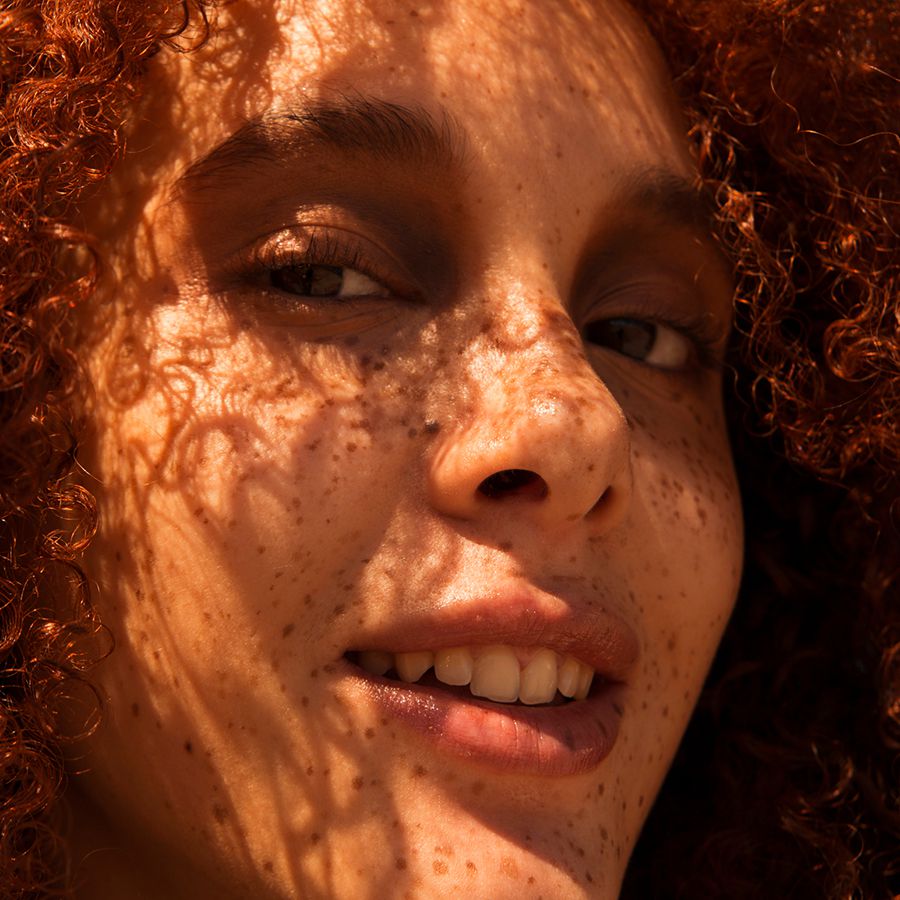Quercetin: An Ingredient That Could Reduce the Effects of UV Radiation
when talking about antioxidant skincare ingredients to fight free radical damage (what causes fine lines, wrinkles, and hyperpigmentation), your mind most likely jumps immediately to popular, powerful choices, like vitamin C, vitamin E, ferulic acid, or maybe even resveratrol. But if you’ve never heard of quercetin or don’t know much about it, now’s the time to get to know its name (which, by the way, was derived from the oak tree—a tree known for its endurance and longevity, according to cosmetic chemist Barbara Olioso of The Green Chemist).
To find out more about this anti-aging ingredient, we turned to Olioso and board-certified dermatologist Caroline Robinson, MD, the founder of Tone Dermatology. Together, the experts explain what the ingredient is, how it works, and how to best use it in your daily routine for the most skin benefits.
Keep scrolling to learn more about this antioxidant worth adding to your roster.
QUERCETIN
TYPE OF INGREDIENT: Antioxidant
MAIN BENEFITS: Reduces the harmful effects of UV radiation and reduces inflammation.
WHO SHOULD USE IT: According to Robinson, topical quercetin can be safely used by most skin types; however, those with more sensitive skin should proceed slowly.
HOW OFTEN CAN YOU USE IT: Quercetin is generally safe to use daily.
WORKS WELL WITH: Robinson says, in general, quercetin works best with ceramides, and in its antioxidant role, it works well with sunscreens. When used in conjunction with sunscreen, topical antioxidants, like quercetin, can help reduce oxidative stress.
DON’T USE WITH: Quercetin works well with most other ingredients.
What Is Quercetin?
Quercetin (which Dr. Olioso describes as a beautiful green powder) is a plant-pigment and flavonoid found naturally in fruits, vegetables, and plants, such as berries and broccoli, green tea leaf, and moringa leaf. It can be consumed orally as a supplement and applied topically through different skincare products (such as moisturizers, toners, masks, or serums) for its antioxidant and anti-inflammatory properties.
Benefits of Quercetin for Skin
“There are ongoing studies about anticancer properties, UV protection, and anti-glycation (glycation causes collagen degradation) effects,” Olioso explains.1 “As research takes a lot of time and money, it is difficult to give conclusive evidence about its properties at this stage; however, there is a lot of promising research happening around the world about it.” Keeping that in mind, here a few potential benefits of quercetin for the skin:
- Reduces harmful effects of UV radiation:2 Like other flavonoids, quercetin is used in skincare for its antioxidant properties, which can help reduce the harmful effects of UV radiation on the skin. Robinson explains this further: “UV rays have the ability to pass through our skin and cells, leading to breaks and damage to our DNA. Some of this damage can be repaired by our skin’s natural repair mechanisms, but if there is too much damage over time, these changes become harder and harder to repair and can put us at risk of developing skin cancers.”
- Fights free radicals: “When used in conjunction with sunscreen, topical antioxidants, like quercetin, can help reduce oxidative stress. This means that it has the ability to find damaged DNA and harmful reactive oxygen species (ROS) in order to repair and neutralize these,” says Robinson.
- Calms inflammation: Additionally, Robinson explains that topical quercetin has demonstrated anti-inflammatory effects on the skin and points to a 2016 study of topical quercetin in which 30 participants found significant improvement in redness, itch, and inflammation when the preparation was applied to damaged skin.
- Reduces heart disease and high blood pressure: Studies have found that quercetin helps improve blood pressure and improves the blood flow of those with heart disease.
- Reduces arthiritis symptoms: One study found that quercetin prevented both acute and chronic inflammation in animals, and demonstrated anti-arthritis properties.
- Reduces the risk of cancer: Studies have shown that quercetin showed promise in both treating and preventing certain types of cancer.
- Relieves symptoms of allergies: As it is an effective antihistamine, quercetin restricts histamine from being released by cells, making it a solid choice for those who suffer seasonal allergies.
- Fights viruses and prevents infections: Quercetin has antibacterial properties, which means it can both fight viruses and prevent future infections by protecting the body from baceteria.
Side Effects of Quercetin
Quercetin can be found in both topical skincare products and oral supplements, but which form would provide the most benefit to the skin? Robinson explains there is a lack of evidence about whether oral consumption of quercetin has any significant impact on the skin. “Topical application, however, has been reported to help the antioxidant function of the skin through protection against the effects of UV radiation while also helping to reduce inflammation and may support skin barrier function,” Robinson says.
As is the case with any oral supplement, Robinson stresses the importance of discussing oral quercetin with your physician before starting it to avoid any interaction with medication or other supplements you are taking.
Side Effects of Quercetin
Quercetin has no known side effects and is rated as a low hazard by the Environmental Working Group. Robinson says quercetin can be safely used topically by most skin types, although those with sensitive skin should proceed more slowly.
How to Use It
How quercetin is best applied depends on the product at hand, but when it comes to choosing a topical product, it works best in conjunction with ceramides, Robinson says. Additionally, as an antioxidant, quercetin works well when used with sunscreens.
The Best Products With Quercetin
One of Robinson’s top picks for its use of quercetin, ceramides, and hyaluronic acid, this moisturizer feels as luxurious on the skin as it looks in the packaging (spot the gold spoon). The formula also relies on whole hemp-derived CBD for its restorative and soothing benefits.
Another favorite of Robinson’s, this rich night cream has and does it all. This formula uses a blend of fatty acids, ceramides, hyaluronic acid, peptides, antioxidants (like quercetin), and azelaic acid to hydrate, repair, and even your skin’s tone.
Your lips need love (and a little antioxidant protection), too. One of Byrdie’s favorite Milk Makeup products, this formula contains quercetin and other antioxidant-rich ingredients like jojoba and olive oils to neutralize free radicals and provide anti-inflammatory benefits. It also uses a blend of cocoa, shea, and moringa butters to soften the skin.
If you love a toner in your skincare lineup, pick up a bottle of this anti-aging formula. Full of omega fatty acids and antioxidants, like quercetin and ferulic acid, as well as hyaluronic acid, a swipe of this toner will help your skin retain moisture, nourish your skin’s barrier, and improve signs of sun damage.
We love a good pun, but what we love about the Drunk Elephant F-Balm more is the way it imparts a glow to even the dullest, driest skin. With ingredients like vitamin F, niacinamide, quercetin, and antioxidant-rich humectants, this overnight mask calms redness, helps the skin maintain hydration, and improves visible signs of aging.
Opt for an eye serum over an eye cream when you really want to address skin concerns, and opt for this eye serum to target fine lines, wrinkles, and hyperpigmentation. We think this formula is one of the best eye serums, thanks to its impressive list of ingredients. A few standouts are ferulic acid, licorice root, retinol, and, of course, quercetin.
As one of the best mineral sunscreens for sensitive skin, this formula is lightweight and fragrance-free and relies on both zinc oxide and titanium dioxide to protect your skin. Not only that, but it also contains quercetin, which as an antioxidant, works great with sunscreens. If you’re not a fan of the white cast physical sunblocks are known for leaving behind, this one comes slightly tinted.








